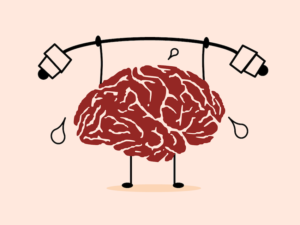How to Find a Therapist
So, you’ve made the empowered decision to find a therapist (woo hoo!), but now what? Once you make the decision to go see someone, the next big step is to try to figure out who you are going to go see. So, how, exactly, do you find a therapist?
Unfortunately, the process of finding a therapist can be confusing, at minimum, and oftentimes overwhelming. I will sadly admit that even as a therapist, when I have looked for therapists for either myself or my friends, it has not been easy.
Let me first share a bit on making sense of the differences between therapists and then we will get to steps to finding one for yourself.
Therapist Credentials
Once you start looking through various professionals who provide therapy, you will notice a wide variety of letters following their names. So what do they all mean, and how important are they?
The most common variations of letters refer to the specific degree the therapist has obtained. A portion of those letters will indicate the particular field of study your therapist pursued (psychology, psychiatry, social work, marriage and family therapy, counseling, etc) while another portion indicates their level of training obtained (masters vs doctorate). Below you will find a table that lists some of the most common credentials you will come across.

In addition to these credentials, some therapists will indicate they are licensed, such as with LCSWs and LMFTs, while others choose to list that information elsewhere. There are also a wide variety of certifications that therapists can complete in a specific area of interest, such as in play therapy, addiction, expressive arts, or hypnotherapy, that come with their own set of letters. Because this list is so extensive, it is much too large to include here, but check out these sites for more information: Good Therapy and Network Therapy.
As with most fields, the level of training or presence of special certifications a therapist has does not necessarily translate into the quality of their services. I know many truly excellent masters-level therapists and I’ve unfortunately come across too many doctoral-level therapists who were lacking. So the amount of training a therapist has isn’t nothing, but it also isn’t everything. It really does come down to the individual.
Therapy Modalities
After getting an understanding of the many types of therapists, then there’s the issue of the many types of therapy. SO MANY THINGS!
Here are just a few of the many therapy modalities out there:
- CBT
- Psychodynamic
- Family Systems
- Humanistic
- Expressive Arts
- Somatic
- Play Therapy
- DBT
- Hypnotherapy
Rather than reinvent the wheel, Good Therapy and Healthline do a great job of describing many of these modalities. If you’re curious about the different approaches, or if you’re trying to better understand how a potential new therapist works, these are good starting points.
However, as with credentials, the specific approach to therapy is often not as important as the relationship you have with your provider. In addition, many therapists are trained in several modalities and are fairly adept at adapting to the needs of the client in front of them.
Although some people may be seeking a very particular form of therapy for whatever reason, It is often not necessary to know what approach your therapist uses. If you’ve confirmed that a therapist has expertise in the areas you are seeking help with, that is likely all you need to know.
Still on the fence as to why you should go to therapy? Check out 7 Myths About Therapy where I debunk many of the myths of therapy and describe some of the benefits.

How to Find a Therapist
1. Ask for a referral from a friend
This is probably the quickest and easiest way to find a good match, particularly if what you’re looking for is similar to that of your friend. As I mentioned in 7 Myths About Therapy, the most important aspect of any therapy is the relationship you have with your therapist. So if you have a good relationship with your friend, and your friend has a good relationship with their therapist, then chances are, you will have a good relationship with the therapist as well (it’s just logic!)
But let me give you an important caveat. If the issue you are seeking help for is very different from that of your friend, and especially if either of your issues are highly specific, you may have a better bet seeking out someone that specializes in your area. Because while the relationship is still most important, you also want someone who actually knows how to help!
2. Go online
Of course, in today’s world, going online to find a professional is a natural next step. But where, exactly, should you go?
Therapist databases
One way to search through a bunch of therapists efficiently is to go to an online therapist database. Psychology Today and Good Therapy are two good places to start. They allow you to customize your search according to your zip code, areas of specialty, therapy modalities, demographics, and types of insurance accepted. You can view the therapists’ profiles, grab their contact information, and some even allow you to book a consultation right from their website (myself included!)
Another option is to return to the catch-all of online searches: google. (Of course, this same strategy applies to similar search hosts, such as yahoo or bing). If you’re going to choose this route, try to narrow your search a bit, particularly if you live in an area with more therapists around. Instead of typing in “therapist near me,” try “therapist and anxiety,” or “LGBTQ therapist and trauma,” or whatever modifiers apply to your needs.
One of the very few silver linings of the current Covid-19 pandemic, is that many therapists have turned to telehealth to provide services (even those who previously had never done so). The advantage of this is your increased ability to access someone who seems like a good fit versus someone who is just geographically convenient. So, if you find someone who sounds promising and they happen to live far away, check whether they offer telehealth services.

3. Call your insurance company
If you’re hoping (or needing) to go through insurance to cover the costs of therapy, another option for finding a therapist is to request a list of providers from your insurance company. Some companies will have a list on their website, while others will require you to call and ask for a list of providers.
Although this is a good starting point, the insurance companies will often give you very little information about the provider other than their name and contact information. I recommend turning back to google to try and gather more information about these providers. Although not everyone has a website, it is becoming increasingly a standard of practice to have some information about your practice online for potential clients to review.
4. Sign up for EAP (Employee Assistance Program) through your Employer
EAP is a work-based program that offers employees free services to address personal problems they might be facing. The idea is that by helping their employees work through their personal problems, it will improve the quality of their work.
This is not a universal program, by any means, but is a great opportunity for those whose employers offer this benefit. The one word of caution I have is that EAP services are time-limited, often ranging between 5 and 10 sessions. Depending on the nature of the problem you’re experiencing, this may or may not be enough. However, some EAP therapists are able to continue providing services even after the EAP benefits lapse through either traditional insurance or private pay. If this is something you’re considering, make sure you ask about this possibility up front.
5. Ask for a referral from a doctor
If all else fails and you haven’t been able to find a therapist through any of the means listed previously, ask for a referral from your doctor. Many times medical staff are the first professionals to hear about the emotional and psychological struggles people are facing, and so they are used to providing referrals for mental health treatment.
As I mentioned under the insurance option, you may get nothing more than a list of names and contact information, but again, this is a good place to start. Once you have the list, go back to google or call some of the numbers and request to schedule a consultation.
Schedule a Consultation
Ok, so you’ve picked out a therapist who looks promising. Now what?
There are so many reasons I highly recommend scheduling a consultation before the first session. The first and most obvious is that you want to make sure this person feels like a good fit for you! Do they have the area of expertise you’re looking for? Does their approach to therapy sound right for you? And last but not least, do you think you “click?”
In addition to ensuring the therapist is a good fit for you, you also want to make sure the therapist thinks you’re a good fit for them. The field of mental health is BROAD, which means that not all therapists are equipped to work with every problem. And therapists are ethically bound to ensure they are only working within their scope of practice (those areas where they are licensed and sufficiently trained).
By trying to gauge this prior to the first session, you reduce the chance of going through all the hoops of starting therapy (finding the therapist, scheduling the session, completing the paperwork, spilling your guts during the intake) only to find out it’s not a good fit and you need to start over.
Certainly, starting over isn’t the worst thing in the world, and it’s better to do that sooner rather than later. But it’s ideal to avoid this if at all possible.
And Go!
Once you get through the hard part of finding a therapist, the only thing left to do is go! So tolerate the anxiety of doing this new thing, share as best you can the struggles you are facing, and allow the wonder of therapy to unfold.
____
Dana Basu, PsyD is a licensed clinical psychologist at EverGROW therapy and founder of Everything But Crazy, an online resource for parents. She provides individual therapy, support groups, and online resources for parents in Orange County and throughout the state of California via online therapy. She specializes in working with the highly sensitive person and people with difficult childhood experiences, trauma, parenting stress, and chronic guilt.



